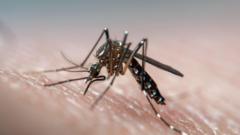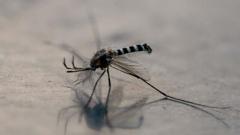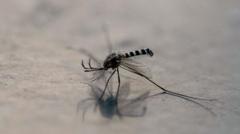In a groundbreaking study, scientists have discovered an unconventional method to tackle mosquito-borne diseases like dengue and Zika: by rendering male mosquitoes deaf. This innovative approach inhibits their ability to mate, thereby reducing future populations.
Mosquitoes, particularly males, depend on their hearing to locate females through the distinctive sounds produced by their wingbeats. Researchers from the University of California, Irvine, manipulated a genetic pathway in male Aedes aegypti mosquitoes – the species responsible for infecting approximately 400 million people globally each year. They specifically targeted a protein essential for hearing, allowing them to observe that the altered males failed to make any physical contact with females, even after three days in a confined environment.
In their research, the team found that while mutant males could not hear the alluring sounds produced by females, their wild counterparts were able to copulate multiple times, successfully fertilizing nearly all females in their vicinity. The findings, published in the journal PNAS, showed that the gene knock-out effect on mating was "absolute" as no mating occurred among the deaf males.
Dr. Joerg Albert from the University of Oldenburg commented on the promising nature of this research, emphasizing the importance of hearing in mosquito reproduction. He noted that if male mosquitoes are unable to hear and pursue their mates, it could potentially lead to a decline in their population.
Additionally, alternative control methods, such as deploying sterile males in endemic areas, are being examined to help manage mosquito-borne diseases. While these insects play a crucial role in the food chain and pollination, curbing their population could be beneficial in reducing the spread of infectious diseases.















